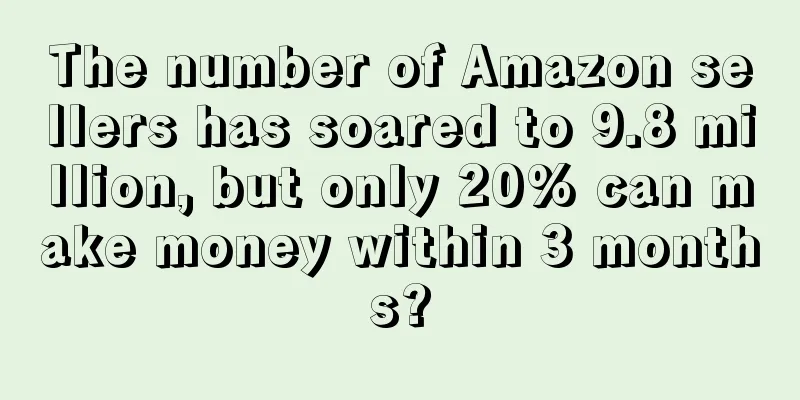Mondial Relay expands logistics services to the Netherlands

|
In addition to the relatively large e-commerce markets in the UK and Germany, e-commerce in other countries has also begun to emerge and be discovered by more investors. For example, in the Netherlands, the logistics company Mondial Relay recently decided to conduct business locally.
Mondial Relay is one of the many e-commerce logistics companies in Europe , and has cooperated with many e-commerce platforms including Amazon and eBay. Currently, its service scope covers 90,000 online retailers in Europe, such as Belgium, France, Spain, Portugal and Luxembourg, and it has 58,000 logistics bases in Europe.
Just a few months ago, Mondial Relay was acquired by InPost , another leading European logistics company founded in Poland in 1999. InPost has a network of parcel lockers in Poland, the UK and Italy , and has been expanding its European market over the years.
Rafał Brzoska, CEO of InPost, also stated that “this is a strategically significant acquisition. By leveraging Mondial Relay’s market position in Europe, we can serve our customers more efficiently and conveniently. We will also redefine last-mile delivery with our practical actions, and we hope to become Europe’s leading logistics service provider in the future.”
In recent years, e-commerce in the Netherlands has grown rapidly, even faster than in France and Belgium. The number of international freight from the Netherlands has also been increasing, with cross-border parcel transportation increasing by nearly 42% last year. Seeing the development potential of the Netherlands, Mondial Relay began to enter the local market, claiming to provide faster and cheaper services.
Although the Netherlands is a small country, it has a high degree of economic openness and is very suitable for developing international trade. In 2020, the output value of e-commerce in the Netherlands reached 26.6 billion euros, which was a significant increase compared to 2019. But surprisingly, local online shopping is more popular in travel, communication electronics, etc., and clothing accounts for a small proportion.
But at present, the Dutch still prefer to use local e-commerce platforms, the most commonly used one is Bol.com. Amazon entered the local market relatively late and is still in a development stage, but this also shows that there is still a lot of market space to be developed locally.
Although the market is small, it is a challenge but can also be seen as an opportunity. Netherlands Europe logistics |
<<: Online shopping to account for 51% of global sales post-pandemic
>>: Amazon updates software sales policy, Ever Given cargo ship leaves Suez Canal
Recommend
eBay Greater China Managed Payment is here, and email invitations will be sent starting in April
Previously, eBay announced that it would launch a...
With a GMV of US$20 billion, India's social e-commerce has great development prospects
Although still in its nascent stage, the Indian s...
Temu products are at the bottom of the user trust ranking!
Recently, Pattern released the results of a surve...
Adidas proposes five-year plan to focus on e-commerce development
Adidas ’ new five-year strategy, called “Own the ...
What is Straand? Straand Review, Features
Straand is a scalp care product provider that is ...
More than 4 million items sold in one year! Amazon's European second-hand business expands
According to foreign media reports, the head of A...
What is Bieyang Overseas Shopping (Bieyang APP)? Bieyang Overseas Shopping (Bieyang APP) Review, Features
Bieyang APP Overseas Shopping is a very convenient...
Total number of users reaches 100 million! Yahoo merges with Japan's largest messaging app LINE
According to Japanese media reports, Yahoo! J APA...
Black Friday logistics speed survey: OnBuy has the fastest delivery speed!
The Black Friday war has just ended, and many con...
Christmas shopping report 2024: These are the most popular gifts for the peak season on eBay Germany!
eBay Germany pointed out in its Christmas Shoppin...
The buy now, pay later market in the Middle East is huge, Tamara received $110 million in Series A funding
Tamara ’s funding round was led by Checkout.com, ...
Crazy delivery! Yantian Port was paralyzed, and sellers queued for 4 days but failed to enter the warehouse
The eve of the Spring Festival is a traditional p...
What is Kuazhitong Intellectual Property? Kuazhitong Intellectual Property Review, Features
Kuazhitong Intellectual Property is the first cros...
What is HomeShop18? HomeShop18 Review, Features
HomeShop18 is an Indian online retailer. The compa...
UK retail sales rose 42.5% in March compared to the same period last year, with household goods seeing the biggest increase
According to foreign media reports, retailers ach...









